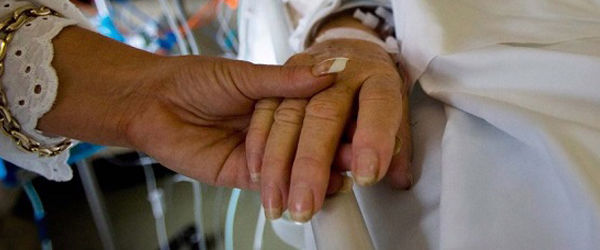A Defense of Dignity: Creating Life, Destroying Life and Protecting the Rights of Conscience, by Christopher Kaczor. University of Notre Dame Press (Notre Dame, Ind., 2013). 232 pp., $30.Aquinas on the Beginning and End of Human Life, by Fabrizio Amerini. Harvard University Press (Cambridge, Mass., 2013). 266 pp., $29.95.Catholics must walk an ethical tightrope when trying to make their way through modern medical science, which ceaselessly pushes ahead with "progress" regardless, it often seems, of the ethical pitfalls.In their new books, Fabrizio Amerini and Christopher Kaczor show in very different discussions that the church cannot keep up with fast-paced research and issue a proclamation for every situation that might take place within a hospital. Emotionally painful and highly specialized bioethical dilemmas often have no clear-cut moral red line.Conversely, Amerini's "On the Beginning and End of Human Life" and Kaczor's "A Defense of Dignity" show how the church offers enough guidance applicable to any given scenario that an acceptable ethical solution may be found.The authors aim to guide people and their consciences within the wider framework of Catholic belief. They endeavor to show how the Catholic bioethical perspective aligns with the rest of Catholic teaching. Following Blessed John Paul II's teaching, these books show how ethics is rooted in theology.Amerini's discussion of Aquinas clarifies potential misunderstandings without avoiding the major causes for concern. First Amerini notes the problem area: "An embryo (for St. Thomas) acquires the property of being rational only with the formation of the basic vital organs, and this occurs ... not before a month and a half of gestation."Second, Amerini shows how even though the great medieval scholastic did not believe the unborn was humanly ensouled at conception (it had first the vegetative and then the animal souls), Aquinas' way of thinking does not contradict the modern church in bioethics. The saint categorized abortion at any stage as a mortal sin, even if it occurred before human ensoulment, because the whole purpose of the fetus was to become a human being. This process gives the fetus its dignity.The author sketches out quite challenging Thomistic philosophy, much of which is of course based on Aristotle. Amerini supposes a certain level of philosophical understanding by his readers, using such terms as "potency and act," "teleology" and "form and matter." The key to Aquinas' contribution to the Catholic view of ethics and bioethics is in this philosophical thinking, Amerini shows.The author of "Aquinas on the Beginning and End of Human Life" outlines how Catholics can use rather sophisticated philosophical and theological ethics to advance their pro-life, anti-culture of death witness to the world.Kaczor in "A Defense of Dignity" introduces the main viewpoints put forth by ethicists who contradict the Catholic stance on various bioethical issues. While much less philosophical than Amerini's offering, this necessarily academic survey of the major contentious issues will certainly challenge readers.Again, Kaczor — professor of philosophy from Loyola Marymount and columnist for The Tidings — does not avoid showing the complicated dimensions to many of the major issues here. He also presupposes a certain level of education in his readers, as we come across medical jargon such as heterologous embryo transfer. The author carefully explains such terms in easy-enough language, but requires careful reading. Each chapter introduces a contentious issue and arguments supporting these often unethical choices.The minimization of human dignity remains the biggest problem. Readers may sometimes be jarred at how this is expressed, as when the author quotes Rebecca Bennett: "If we insist that a world without impaired people is morally preferable to a world containing impaired people ..., then we do so because we value the impaired less than the unimpaired."She is referring to "procreative beneficence," a stance that often leads to the abortion of an unborn child because of some "birth defect." Kaczor and his citations of writers such as Bennett show how this is really eugenics, which is evil because it prefers some humans over others. This affronts human dignity, since we are all deserving of life.As with all of these ethical dilemmas, the issue is presented by post-Christian secularists as a good. The parents are supposedly exercising their concern over the future well-being of their children. However, even if we could control the genetic outcome of fertilization, Bennett and Kaczor worry that we do not have the right or the power to judge what attributes in a future human being would be preferable over others. As well, they argue that we must not waste money on creating the future perfect man or woman when people existing now are suffering from lack of resources.These challenging books will give readers much to ponder, even though, as a downside for some readers, the arguments can be long and complex.Brian Welter has degrees in history and theology, and teaches English in Taiwan.

